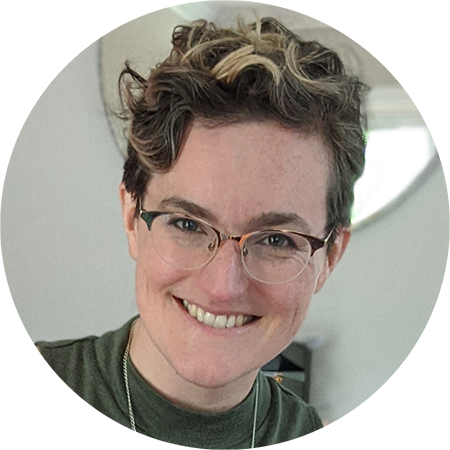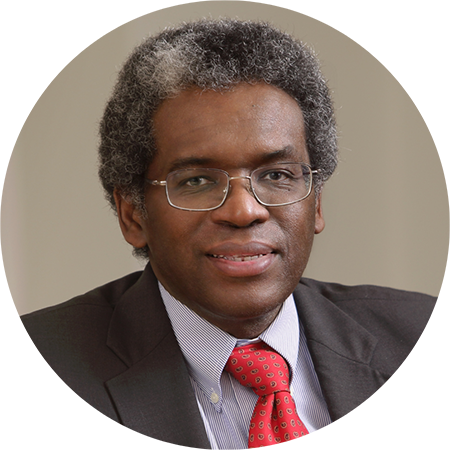NIH Director’s Awards: Discover the Full List of Equity, Diversity, Inclusion, and Accessibility Winners

Part of what makes NIH special is our daily commitment to equity, diversity, inclusion, and accessibility (EDIA). We embody it 365 days a year by ensuring it is present during every stage of the employment lifecycle and embedding it in our service to the communities we serve.
As the Director of the NIH Office of Equity, Diversity, and Inclusion (EDI), it is my honor to announce this year’s recipients of the NIH Equity, Diversity, Inclusion, and Accessibility Awards. The recipients demonstrate how we can all amplify our commitment to embody inclusive and equitable behaviors by expressing our support for EDIA openly, with courage and conviction.
Award Categories
The Harvey J. Bullock Jr., Award was established to recognize employees who champion the ideals of equity, diversity, and inclusion. This award was specifically designed to recognize the achievements of employees who are non-supervisory, in grades 12 or below, or equivalent.
The Yvonne Thompson Maddox Award was established to encourage significant and continued efforts in promoting equity, diversity, and inclusion at the NIH. This award was specifically designed to recognize non-supervisory employees’ achievements in grades 13 and higher or the equivalent who exemplify the spirit of the award.
The NIH Equity, Diversity, and Inclusion Award of the Year was established to recognize executives, supervisors, or managers who have excelled in furthering NIH’s equity, diversity, and/or inclusion efforts. This award is granted to leaders who exemplify the ideals of equity, diversity, and inclusion.
(NEW in 2023) The NIH Award for Accessibility recognizes the efforts and achievements of individuals who have made significant and continued efforts in promoting accessibility in our workforce. This award is open to all NIH federal employees or groups of federal employees who embody the spirit of the award as evidenced by making strides in promoting accessibility.
Congratulations to this year’s deserving recipients who exemplify the spirit of equity, diversity, inclusion, and accessibility that propels us forward.
2023 Winners
HARVEY J. BULLOCK, JR., AWARD FOR EQUITY, DIVERSITY, AND INCLUSION
For 2023, we are proud to announce there are two recipients:
Quinn Cassidy
Donna Hopkins
Quinn Cassidy
Management Analyst
National Center for Advancing Translational Sciences (NCATS)

Ms. Quinn Cassidy’s efforts to further equity, diversity, and inclusion at NIH have been remarkable and have had a significant impact on the organization’s culture and workforce.
Specifically, Ms. Cassidy developed the Federal Employee Viewpoint Survey (FEVS) Demographic Data Dashboard, or FEVS 3D. This innovative tool visualizes annual FEVS data and identifies disparities between respondent demographic groups. This first-of-its-kind tool at NIH illuminates the difference in employee experience by respondent demographic group. FEVS 3D has been called a game changer for the NIH FEVS community.
After sharing the tool with other NIH Institutes and Centers, she continued improvements on the tool to enhance confidentiality and include the capacity to rapidly add new demographic group comparisons. Together, these contributions increase the awareness of and sensitivity to concerns of NIH employees in a way that was not previously done at NIH.
Ms. Cassidy has also made significant contributions while serving as the executive secretary for the NCATS Inclusion, Diversity, Equity, and Accessibility Council or IDEA. She used her background as a social worker to organize and facilitate post-seminar groups designed to lead participants in a guided discussion to unpack their learning as it relates to individual spheres of influence. This strengthened communication across identity groups at NCATS and enhanced the ability of employees to apply what they learn in their day-to-day routines.
In honoring Ms. Cassidy with this award, we recognize her commitment to promoting communication and dialogue across identity groups, raising awareness and sensitivity to concerns and issues facing NIH employees.
Donna Hopkins
Program Specialist
Division of Cancer Control and Population Sciences (DCCPS), National Cancer Institute (NCI)

Ms. Donna Hopkins has made meaningful contributions to advancing racial and ethnic equity in DCCPS and NCI, regularly going above and beyond and serving as a model to her colleagues. She embodies collaboration, initiates crucial dialogues, advocates for peers, and champions education.
Ms. Hopkins was the inaugural co-chair of the Dialogue on Discrimination and Health Equity Committee (the Committee) for DCCPS, which was created after the death of George Floyd. Under her leadership, the Committee saw the importance of fostering further discussion around racial and ethnic equity and became the Committee on Racial and Ethnic Equity (CREED).
CREED's mission is to enhance DCCPS's dedication to anti-racism and equity by collaborating with staff, raising awareness of structural racism, fostering inclusivity, and engaging the entire DCCPS workforce in conversations about race and social issues. Under Ms. Hopkins’ leadership, the committee organized all-staff meetings, speaker presentations, summer book readings, and open discussion forums. Ms. Hopkins also played a key role in CREED’s focus on helping to strengthen diversity hiring language and practices as part of a larger initiative to recruit a more diverse applicant pool.
Today, Ms. Hopkins mentors the current co-chairs of CREED while focusing on her role as project manager for a year-long series of retreats for DCCPS focused on advancing EDIA. This is a testament to leadership recognizing Ms. Hopkins’ ability to guide and teach those around her the importance of embracing a more open and inclusive way of working.
In honoring Ms. Hopkins with this award, we recognize her unwavering commitment to creating a safe space for others where they can feel seen, heard, and valued for their contributions.
YVONNE THOMPSON MADDOX AWARD FOR EQUITY, DIVERSITY, AND INCLUSION
Roland Owens, Ph.D.
Director of Research Workforce Development and Acting Deputy Director
Office of Intramural Research (OIR)

Dr. Roland Owens has been the principal architect and manager of the policies, programs, and processes that have resulted in a profound transition from a relatively homogeneous to a much more diverse and inclusive community of scientists within the NIH Intramural Research Program (IRP).
His philosophy is that scientists from groups currently under-represented in the IRP are an extraordinary pool of talented individuals that NIH can attract. Dr. Owens champions strategies such as networked outreach and communication; recruitment as part of a cohort of like-minded individuals; and sustained demonstration of inclusiveness, equitable treatment, and career advancement.
Dr. Owens understands the importance of communication and networking and plays an important role in connecting members from numerous communities and backgrounds. Through listservs, online resources, and speaking events, Dr. Owens is repeatedly the “go-to” person for all matters related to EDIA in the IRP.
His most effective and game-changing contributions include the development of the central Stadtman recruitment process for tenure-track investigators at NIH and the Distinguished Scholars Program for both tenure-track and tenured investigators who epitomize the goals of supporting a diverse workforce and assuring inclusive excellence at NIH. The recruitment and successful hiring of scientists from the Stadtman and Distinguished Scholars Programs have had a significant role in strengthening representation in leadership positions at the IRP. Dr. Owens is also the founder of the Black Scientists Association at NIH.
In honoring Dr. Owens with this award, we recognize his deep commitment to building a rich and diverse community of scholars at the NIH.
NIH EQUITY, DIVERSITY, AND INCLUSION AWARD OF THE YEAR
Michelle Jones-London, Ph.D.
Chief
Office of Programs to Enhance Neuroscience (OPEN) Workforce Diversity, Division of Extramural Activities, National Institute of Neurological Disorders and Stroke (NINDS)

Dr. Michelle Jones-London has directed diversity training and workforce development for the NINDS OPEN Workforce Diversity office since helping to establish the office in 2017. Throughout her career at NIH, Dr. Jones-London has developed and implemented numerous initiatives leading to significant, measurable advances in equity, diversity, and inclusion.
Some examples of her innovative leadership include: (1) Establishing the NIH Blueprint for Enhancing Neuroscience Diversity through the Undergraduate Research Education Experiences (ENDURE), which provides underrepresented individuals with training at the undergraduate level that prepares them for neuroscience Ph.D.s, and (2) Initiating the NIH Blueprint and the Brain Research Through Advancing Innovative Neurotechnologies Initiative Diversity Specialized Predoctoral to Postdoctoral Advancement in Neuroscience Award, which aids diverse graduate students in transitioning to postdoctoral roles by providing career development, mentoring, and a supportive network.
Dr. Jones-London empowers the extramural community to take advantage of these programs by publicizing and sharing resources while building support networks. From webinar series to podcasts, and quarterly calls to annual meetings, she fosters connections across the greater community.
In addition, Dr. Jones-London plays a key role in the development and refinement of policies and programs at NIH that aim to enhance our EDIA principles. She has led, developed, and participated in working groups and initiatives that far exceed her official duties and has been a member of countless committees.
In honoring Dr. Jones-London with this award, we recognize her as a model leader for EDIA and her contributions to the NIH Blueprint prints.
NIH AWARD FOR ACCESSIBILITY
Kent W. Hunter, Ph.D.
Senior Investigator
Center for Cancer Research, NCI

Dr. Kent W. Hunter has significantly contributed to EDIA at NIH in his role as supervisor of the Deaf Student Training Program (DSTP). This program recruits deaf and hard-of-hearing students to expose them to current methods and strategies in basic biomedical research. His leadership has led to transformative changes that enhance accessibility and foster a more inclusive scientific community. Such changes include but are not limited to, structural modifications in his laboratory, additional integration of American Sign Language (ASL) interpreters, and an increased ASL proficiency among hearing staff.
Beyond these tangible adjustments, Dr. Hunter’s dedication transcends boundaries. For the last several years, Dr. Hunter has expanded the DSTP demonstrating his commitment to broader accessibility on a national and international scale. To date, the program has trained five students who are in current graduate programs or are applying to medical schools.
His proactive approach to providing appropriate ASL interpreters at conferences further exemplifies his dedication to empowering deaf scientists. Since scientific ASL is not standardized, it is critical for deaf scientists to bring interpreters familiar with specific language and accompanying signs used in that deaf community. Otherwise, significant interpretation barriers exist..
In honoring Dr. Hunter with this award, we celebrate his invaluable efforts in advancing accessibility and forging a more inclusive future for biomedical research.
More Information
Do you have a story idea for us? Do you want to submit a guest blog? If it's about equity, diversity, or inclusion, please submit to edi.stories@nih.gov.
For news, updates, and videos, subscribe or follow EDI on LinkedIn, X, Blog, and YouTube.


